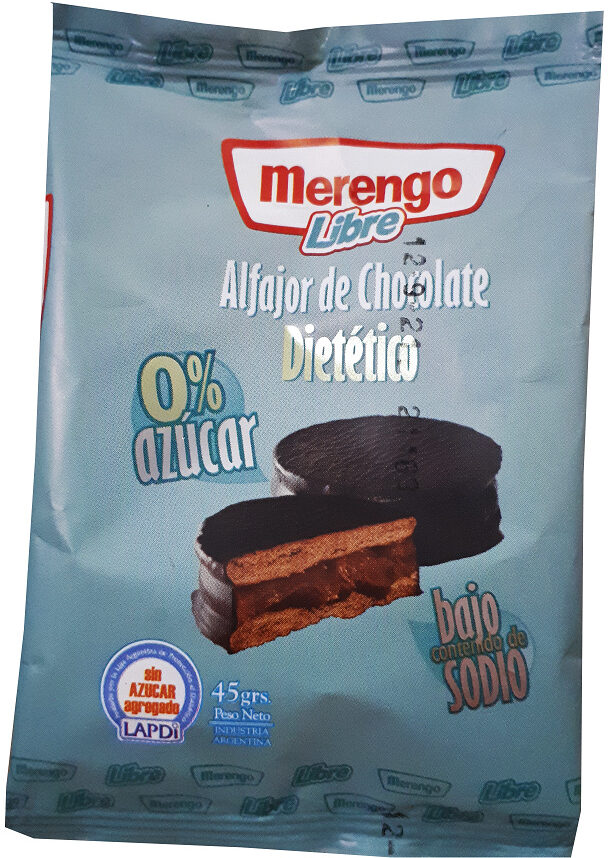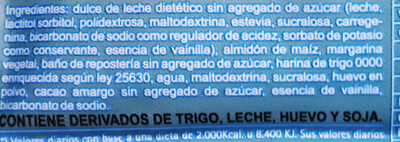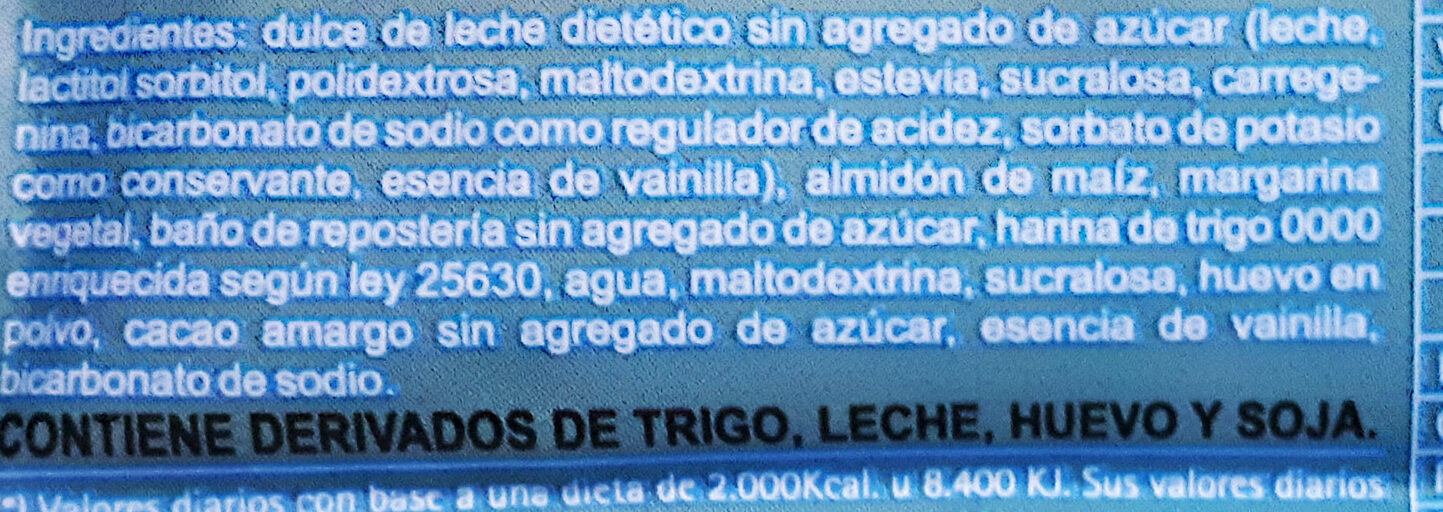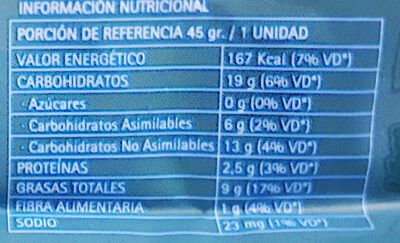Alfajor de Chocolate Dietetico - Merengo - 45 g
This product page is not complete. You can help to complete it by editing it and adding more data from the photos we have, or by taking more photos using the app for Android or iPhone/iPad. Thank you!
×
Barcode: 7794921001033 (EAN / EAN-13)
Quantity: 45 g
Packaging: pt:Papel metalizado
Brands: Merengo, Merengo Libre
Categories: Snacks, Sweet snacks, Confectioneries, Festive foods, Christmas foods and drinks, Christmas sweets, Alfajores
Labels, certifications, awards: Low or no sugar, Low or no Sodium, Low Sodium, No sugar
Origin of ingredients: Argentina, es:Santa Fe
Manufacturing or processing places: Santa Fe, Argentina
Traceability code: RNE 21-113307, RNPA 21-096442
Link to the product page on the official site of the producer: http://www.alfajoresmerengo.com
Stores: Dietetcas Tommy
Countries where sold: Argentina
Matching with your preferences
Environment
Packaging
Transportation
Report a problem
Data sources
Product added on by dramos
Last edit of product page on by packbot.
Product page also edited by flipwared, inf, openfoodfacts-contributors.










